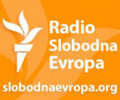Interpol Seeks Arrest of 17 Yugoslav Fighters
 Interpol has issued ‘red notices’ for 17 former members of Serbian forces, including a ruling party MP, over allegations that they committed war crimes in Kosovo in April 1999.
Interpol has issued ‘red notices’ for 17 former members of Serbian forces, including a ruling party MP, over allegations that they committed war crimes in Kosovo in April 1999.
Interpol on Wednesday issued notices calling for the arrest of the current head of Serbia’s parliamentary committee for security, Momir Stojanovic, and 16 other people who were part of Belgrade’s forces during the war in Kosovo, accusing them of war crimes against civilians.
The men are suspected of involvement in the murders of more than 300 Kosovo Albanians in the villages of Meja and Korenica, near the town of Djakovica in the Reka e Keq area close to the Albanian border in late April 1999.
Beside Stojanovic, the men who are wanted are Nikola Micunovic, the former head of the Djakovica Military Department, Momcilo Stijovic, a former police officer, brothers Momcilo, Milutin and Miladin Novakovic, also former police officers, Muharem Ibraj, a former police commander in Djakovica, Sreten Camovic, a former state security officer, Dimitrije Rasovic, a former police inspector, and a series of other Serb fighters: father and son Dragan and Aleksandar Pekovic, Zivko Vuksanovic, Miras Gegovic, Predrag Stojanovic, Miso Popovic, Lazar Draskovic and Zoran Mirkovic.
The red notices, considered the closest thing to an international arrest warrant, were issued on the basis of a request from the United Nations Mission in Kosovo.
Stojanovic, now a lawmaker with the ruling Serbian Progressive Party, has denied the allegation, saying that the move was just intended to frighten Serbs so they don’t return to Kosovo.
“I hope I have the state behind me and that it will have its say about that,” he told journalists in parliament on Wednesday.
He also suggested that the warrants were issued in reaction to the impending establishment of an EU-backed special court to try Kosovo Liberation Army members for crimes during and after the war.
In April 1999, according to international campaign group Human Rights Watch, which documented war crimes in Kosovo, Yugoslav soldiers and Serbian special police forces surrounded villages in the Reka e Keq area, rounded up the inhabitants and forced them to flee along the road towards Djakovica.
Many of the villages were systematically burned.
HRW also identified some of the alleged perpetrators, including the brothers Novakovic. Three witnesses told HRW that they saw Milutin Novakovic, known as Stari, who was a policeman at the time, at a checkpoint near the village when the killings took place on April 27. HRW was also told that his brother Miladin was there.
The killings in Djakovica were also listed in the indictment of former Yugoslav President Slobodan Milosevic and five other Serbian officials by the International Criminal Tribunal for the Former Yugoslavia.
A protected witness who testified at the Milosevic trial said that the reason for the attack was a murder of five Serbian policemen who were killed by the Kosovo Liberation Army in an ambush near the centre of Meja on April 22, 1999.
Nike Peraj, a former Yugoslav Army officer who testified at the Milosevic trial as an insider witness, said that current Serbian MP Stojanovic was among those who after these murders issued an order to his subordinates that at least 100 people should be killed in revenge.
Sandra Orlovic, director of the Humanitarian Law Centre, which has documented the crimes in Djakovica, said that its research and Hague Tribunal documents show that the units responsible for the attack were the 549th Motorised Brigade of the Yugoslav Army, led by Bozidar Delic, also a member of the Serbian ruling party and a former MP, and 125th Motorised Brigade, led by now-retired general Dragan Zivanovic, who is currently under investigation by the Serbian prosecution for alleged wartime crimes near the Kosovo town of Pec.
Orlovic said that the Djakovica murders represented the largest mass killing of the 1999 conflict. Most of the bodies were later found in a mass grave at the Batajnica police training centre near Belgrade.
“This was an extensive operation which included the army and the special police, not just aimed at expelling civilians, but also removing and covering up the bodies,” she told BIRN.
So far Serbia has not investigated the crimes, despite an announcement several years ago that a case would be opened, Orlovic said.
“The sensitivity of this case is that due to the number of units involved, the investigation would lead to the responsibility of currently high-ranking officials,” she said.









